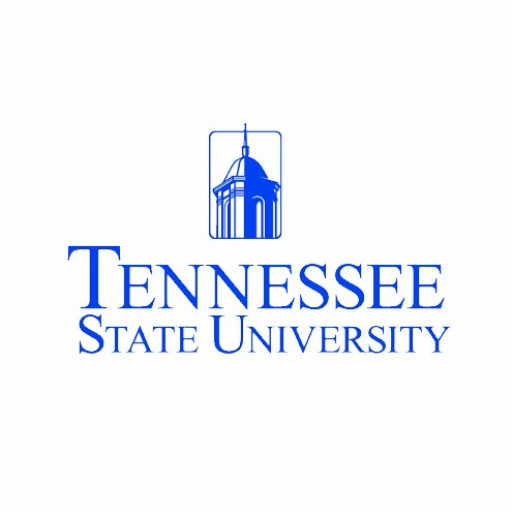Photos of university / #unizh
The Master of Science in Earth System Science at the University of Zurich offers a comprehensive and interdisciplinary education, preparing students to address complex challenges related to the Earth's environment and its interconnected systems. This program combines rigorous coursework in geosciences, atmospheric sciences, oceanography, ecology, and environmental policy, enabling graduates to develop a holistic understanding of the Earth’s processes. Students will engage with cutting-edge research, data analysis, and modeling techniques to analyze the Earth's climate, ecosystems, and human impacts. The curriculum emphasizes critical thinking, scientific methodology, and practical skills through laboratory work, field studies, and project-based learning. Collaboration with leading researchers and access to advanced facilities provide an enriching learning environment that fosters innovation and scientific excellence. Graduates will be equipped to work in academic research, environmental consulting, policy advising, or further academic pursuits. The program also emphasizes sustainability and the social relevance of Earth sciences, urging students to consider the societal implications of their work and contribute to sustainable development goals. With personalized supervision and a flexible structure, students can tailor their studies to their interests, whether focusing on climate change, natural hazard risk, resource management, or ecological conservation. The University of Zurich's location, with its proximity to diverse natural environments and active research community, enhances the learning experience. Graduates will leave the program with a thorough understanding of Earth's complex systems and the skills necessary to contribute effectively to solving global environmental challenges, making this Master's degree a valuable step toward a career in Earth and environmental sciences.
- Seminar "Current topics in ESS" (compulsory)
- Colloquium & Seminar in Remote Sensing **
- Spectroscopy of the Earth System
- SAR and LIDAR
- Solving Geospatial Problems using Matlab
- Retrieving Geographic Information
- Advanced Spatial Analysis
- Cognitive Issues in GIScience
- Introduction to Databases
- Spatial Databases
- Spatial Algorithms (GIScience B)
- Geographic Information Visualization (Geovis)
- Numerical Methods in Environmental Sciences
- Contemporary analysis for ecology (R)
- Introduction to programming in R
- Practical Introduction to R
- Statistics and Probability
- Einführung in die Statistik (German)
- Computational Science I
The following academic degrees exempt the holder from having to pass any further examinations for admission to the a Master’s degree course: -A Bachelor's degree from the Faculty of Science of the University of Zurich, whereby the Faculty determines which types of the Bachelor's degree are required for admission to the respective Master's degree courses. - Corresponding degrees of Swiss and foreign universities which are generally recognized by the Faculty, or recognized by subject. In terms of paragraph 1, such degrees are reviewed according to the stipulations of § 3 of the Bologna guideline of the Swiss University Conference. Further possibilities for admission to a Master’s degree course: the Faculty assesses all other qualifications, in particular those from universities of applied sciences, according to its own criteria, whereby. The principle of equal treatment applies to assessing the equivalence of Bachelor's degrees The Faculty can require the fulfillment of additional conditions in form of evidence of academic achievement. The Faculty decides about the acceptance of academic achievements and credit points which were obtained elsewhere.
Financing for the Earth System Science program at the University of Zurich is structured through a variety of funding opportunities available to both domestic and international students. Tuition fees are set annually and vary depending on the student's residence status and study level. For master's students, the fees are relatively moderate compared to other Swiss universities, with the possibility of reduced fees for students from specific regions or under certain scholarship schemes.
Students are encouraged to explore numerous scholarship options provided by the University of Zurich, Swiss government, and external entities. The University of Zurich offers a range of scholarships based on academic merit, financial need, or specific criteria such as nationality or field of study. International students may also benefit from scholarships offered by their home countries or international organizations supporting science and education.
In addition to scholarships, students can seek part-time employment during their studies, with opportunities available within the university and in the Zurich area. Work regulations for international students are governed by Swiss law, and full-time students may generally work up to a certain number of hours per week to support their studies.
It is also possible for students to secure research grants or assistantships if involved in specific projects related to Earth System Science. These positions often offer a stipend or salary that can help offset living expenses and reduce overall financial burden.
Students are advised to plan their finances carefully, considering living costs in Zurich, which include accommodation, health insurance, transportation, and daily expenses. Zurich is known for its high quality of life, but also for its high living standards and costs.
Overall, financing of the Earth System Science program involves a combination of tuition fees, scholarships, part-time work, and research funding, providing diverse options for students to support their academic pursuits while managing their financial needs effectively.
Expenses
Living expenses depend very much on the individual student. These figures should therefore be regarded as a guideline only (in CHF):
| Rent incl. heating | 550 |
| Additional expenses (telephone, internet) | 200 |
| Meals | 400 |
| Insurance | 250 |
| Travel | 80 |
| Clothing, laundry, personal items | 70 |
| Leisure, spending money | 150 |
| Teaching materials | 50 |
| Total | 1,750 |
The expected minimum cost of living for students therefore comes to a total of CHF 1,750 per month. Course fees come to around CHF 770 per semester.









